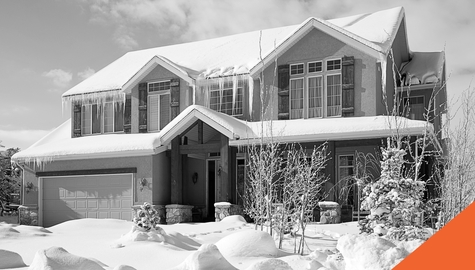What to Do After a House Fire: Navigating the Insurance Landscape
Wednesday, 24 January 2024
A house fire can be an overwhelming and disorienting experience. Emotions are at an all-time high, and a million thoughts are likely racing through your head. Despite the stress that comes with a house fire, navigating through such a tragic situation is something that many people probably haven’t given much thought to. Or if it has crossed their mind, they might think, “That will never happen to me.”
Regardless, it’s always best to take the proper steps and prepare for anything. Simply put, you never know what curveballs life may throw your way. So, as a precaution, we’ve put together a comprehensive guide that will cover the initial steps you should take following a house fire, discuss the role home insurance plays in protecting you, and provide information on what you should do following a house fire if you don’t have insurance.
Transcript: Insurance Tips for House Fires
What to Do After a House Fire: First Steps
Above all, prioritize your well-being and that of your loved ones. Once you've safely evacuated the premises, immediately contact emergency services. Call 911 to ensure that first responders are on their way to address the situation and provide you with the proper help after a house fire. Even if the fire seems to be under control, it's crucial to have experts assess the situation for any hidden risks or potential flare-ups.
Additionally, make sure you report the fire to your local fire department and any relevant authorities. Providing accurate information about the incident helps streamline their response and ensures that the appropriate resources are dispatched promptly. Remember that personal safety comes first, so you should only attempt to re-enter the property once authorized by fire officials.
Amidst the chaos, consider securing temporary accommodations for you and your family. Reach out to friends, family, or local emergency services to find a safe place to stay. The emotional toll of a house fire is immense, and having a stable environment in the immediate aftermath is crucial for processing the situation and planning your next steps. While the road to recovery may seem daunting, taking these initial steps focusing on safety lays the foundation for a more manageable and effective response to this challenging situation.
Understanding House Fire Insurance Coverage
Homeowners insurance typically covers various aspects of a house fire, encompassing structural and personal property damage. The primary coverage for structural damage ensures that the insurance provider shoulders the costs associated with rebuilding or repairing the house after a fire. This can include damage to the foundation, walls, roof, and other essential components.
In addition to structural coverage, homeowners insurance often extends to personal belongings within the home. This means that items such as furniture, clothing, appliances, and electronics damaged or destroyed in the fire may be eligible for reimbursement. It's crucial for policyholders to maintain an up-to-date inventory of their possessions, complete with receipts and documentation, to facilitate the claims process.
Additional living expenses (ALE) coverage can be a financial lifesaver for homeowners in the event of a fire. This helps cover the costs of temporary housing, meals, and other essential living expenses - ensuring that homeowners can maintain a level of normalcy while their damaged or destroyed property is being repaired or rebuilt.
Liability coverage is another vital aspect of insurance that protects you from a house fire. This coverage helps homeowners if someone sustains an injury on their property during the fire or the events that follow it. The liability portion of the insurance policy may cover medical expenses and legal fees.
However, it's essential to be aware of potential limitations and exclusions within the policy. Certain high-value items, such as expensive jewelry or artwork, may have coverage limits, and additional endorsements or riders might be necessary for full protection. Additionally, insurance policies may exclude coverage for fires caused by specific perils, such as arson or acts of war. Understanding the nuances of house fire insurance coverage empowers homeowners to make informed decisions, ensuring their policy aligns with their needs and expectations in times of crisis.
What to Do After a House Fire with Insurance
Experiencing a house fire is undoubtedly traumatic, but having insurance can be a crucial lifeline in rebuilding your life and property. Here's a step-by-step guide on what to do after a house fire when you have insurance:
Contact Insurance Provider
Reach out to your insurance provider promptly. Report the incident and provide as much detail as possible. This initial contact sets the claims process in motion, allowing the insurance company to assess the situation and guide you through the subsequent steps.
Document Damages
Thoroughly document the damages to your property. Take photographs and videos of every affected area, capturing the extent of structural damage and the condition of personal belongings. This documentation serves as crucial evidence during the claims process and helps ensure you receive fair compensation for your losses.
Understand Your Coverage
Review your insurance policy to gain a comprehensive understanding of your coverage. Be aware of the specific perils covered, coverage limits, and any exclusions that may apply. Knowing the details of your policy will empower you to navigate the claims process more effectively.
Work with a Claims Adjuster
Once your claim is submitted, the insurance company will assign a claims adjuster to assess the damages. Cooperate fully with the adjuster, providing them with all necessary documentation and information. Their role is to evaluate the extent of the loss and help determine the appropriate compensation.
Receive and Utilize Your Benefits
Upon approval of your claim, you'll receive benefits to aid in your recovery. These benefits may cover structural repairs, replacement of personal belongings, and additional living expenses if you're displaced from your home. Understand the terms and conditions of your benefits and utilize them wisely to expedite the rebuilding process.
What to Do After a House Fire with No Insurance
A housefire aftermath without insurance can be challenging, but there are several ways to receive support and assistance. Here are some different methods you can consider if you do not have coverage through home insurance.
Community and Governmental Aid
Many communities have resources to help with immediate needs, such as temporary housing, food, and clothing. Local disaster relief organizations, community centres, and government agencies may offer valuable support during this challenging time.
Legal Considerations and Rights
Consult with legal professionals to explore potential avenues for assistance. Some provinces and territories may have tenant protection laws or programs that provide assistance to individuals affected by disasters. Additionally, seek advice on any liability issues or responsibilities you may have in the event of a fire that impacts neighbouring properties.
Alternative Financial Resources
Crowdfunding platforms can effectively garner support from friends, family, and the wider community. You should also consider reaching out to local charities, religious organizations, or non-profits that may offer financial assistance or connect you with additional resources available through their programs.
In the absence of insurance, it's crucial to be proactive in seeking assistance from various sources. Community support, coupled with an understanding of your legal rights and alternative financial resources, can help you rebuild and regain stability after the devastating impact of a house fire. Remember, you are not alone, and there are often compassionate individuals and organizations ready to offer a helping hand during challenging times.
How to Get Home Insurance after a Fire
The process of securing home insurance after a house fire can be complex. However, it's critical to rebuilding and safeguarding your home against future risks. In this section, we'll explore potential challenges you may face and different steps that will help you navigate this often difficult process so that you can find the coverage you need to enjoy a renewed sense of security.
Understand the Challenges
After a house fire, obtaining home insurance becomes a formidable task due to the perceived increased risk associated with the property. Insurance providers may view the property as more susceptible to future incidents, and some may even deny coverage outright. Understanding these challenges is the first step in navigating the insurance landscape post-fire.
Shop for Insurance
Not all insurance providers handle post-fire situations in the same way, so it's crucial to shop around for a company that specializes in or is willing to underwrite properties with a history of fire damage. Look for insurers with experience in high-risk situations and a track record of providing coverage for homes that have undergone restoration. Consider consulting a BIG broker to help during this stage. They can request quotes from over 30 trusted insurance providers and help you find sufficient coverage at affordable rates.
Disclose Previous Fire Damage
Honesty is paramount when seeking insurance after a fire. When interacting with potential insurers, disclose all details about the previous fire damage. Failing to provide accurate information can result in coverage denial or complications during the claims process in the future.
Risk Assessment and Mitigation
Work with the insurance group to conduct a thorough property risk assessment. This may involve an inspection to identify potential hazards and vulnerabilities. Implementing risk mitigation measures, such as upgrading safety systems or utilizing fire-resistant materials, can strengthen your case for insurance approval and potentially lower premiums.
Securing home insurance after a fire may pose challenges, but with a strategic approach and the assistance of experienced insurance brokers, you can find coverage that protects your property and provides peace of mind for the future.
Insurance Made Easy with BIG
Hopefully, this blog has helped answer any questions you may have had about what happens after a house fire and how insurance helps during this time of need. While you may never expect to find yourself in the process of handling a house fire, it’s always best to prepare for the “what ifs” so that you are in a better position to deal with life’s toughest moments.
If this blog has left you curious about the best ways to protect your recently purchased home, made you curious about your current coverage, or left you wanting to learn more about home insurance and house fires, your best bet is to contact your nearest BIG branch. They will take the time to assess your situation, evaluate your needs, and provide expert advice on what the perfect policy looks like for you.



